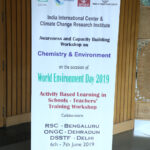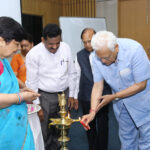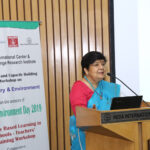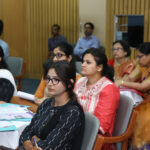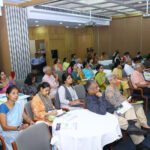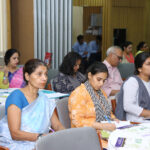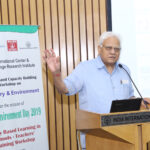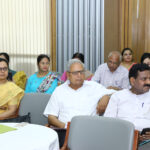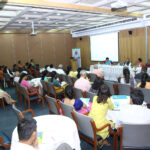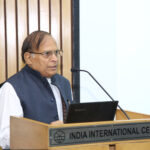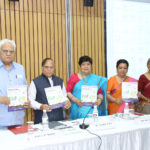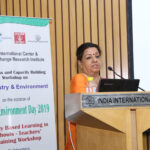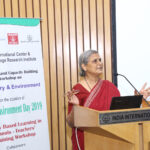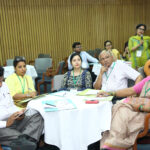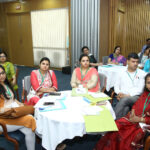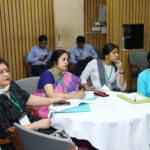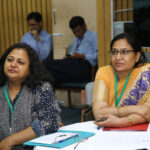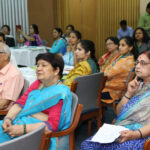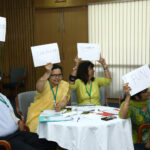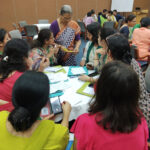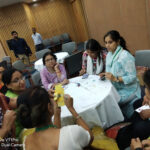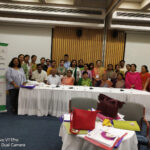World Environment Day - 2019
Activity Based Learning for Science Teachers in Schools on World Environment Day 2019
6th & 7th June 2019, India International Centre, New Delhi
The Climate Change Research Institute (CCRI) in association with India International Center held a Teachers’ Training Workshop for Activity Based Learning in Chemistry on June 6-7, 2019 to celebrate World Environment Day 2019. The workshop was conducted in collaboration with the Royal Society of Chemistry. In the Inaugural Session Honorable Chief Guest Dr. V.K. Garg, Ex- CMD, Power Finance Corporation Ltd said that future development of any nation is in the hands of teachers. He described importance of chemistry in our life and gave innovative ideas on how to mitigate plastic pollution. Dr. (Mrs.) Malti Goel, President CCRI said that chemistry has a vital role in our environment. Chemicals produced from natural resources enhance our life in many ways, but their overuse is accompanied by environmental pollution as well as adverse health impacts. Knowledge about chemistry then helps to solve the environmental problems. She gave an example of ‘ozone layer depletion’ caused by certain chemicals as refrigerants. By 2030 more than 50% of world population will live in hot climates and would get exposed to frequent ‘heat wave’ events. India with a long term vision has launched Cooling Action Plan in 2018 and announced Global Cooling Prize is search of new refrigerants so as to reduce demand for cooling energy. Guest of Honor on this day Prof. G.D. Sharma, Ex-Secretary UGC enlightened the participants about the need for changing the life styles to deal with the environment crisis due to climate change. He said education encourages people to use resources more efficiently. There is a need for everyone to learn how to recycle household waste. Mrs. Maya Gupta, Director-Principle Universal Public School in the Keynote address giving examples from ancient Vedas, provided insights about teachers’ role in creating environment awareness among children.
This unique Workshop participated by more than forty teachers and mentors from different schools had a focus on enhancement of skills and knowledge of science teachers. Giving emphasis to 100% engagement through novel approaches, the resource person introduced activity based learning techniques such as; DART, use of Concept maps, Tarsia grids and Chemical reaction grids. Different playful tools were suggested like; Bingo, Word search, Ionic jigsaw and others for teaching chemical equations and topics like particle nature of matter so as to inspire school students to study science. ‘Foldscope’ – a low cost, paper microscope easy to assemble and designed to give optical quality similar to conventional microscope was demonstrated for detection of pollutants in air, water and soil. Teachers were urged to introduce it among children for monitoring of pollution data from their surroundings.
The active learning in science benefitted many teachers who felt that they could create magic in the classroom. ‘Extremely interesting and useful’ noted some participants. The two day Workshop ended with distribution of certificates & mementoes with recommendations to hold more such programmes in future towards excellence in human resource development towards sustainability. The IIC and joint partners ONGC and DSSTF were thanked profusely. CCRI Bulletin ‘Climate SAR’ on ‘Climate Change and COP 24’ vol. VI, no. 1, 2019 was released on this occasion’.
Youtube Link:- https://youtu.be/uLzEw60lNiM

